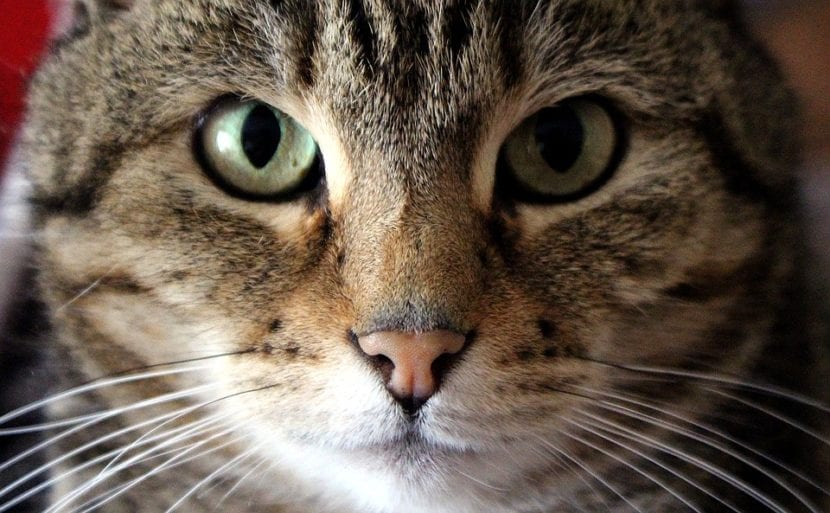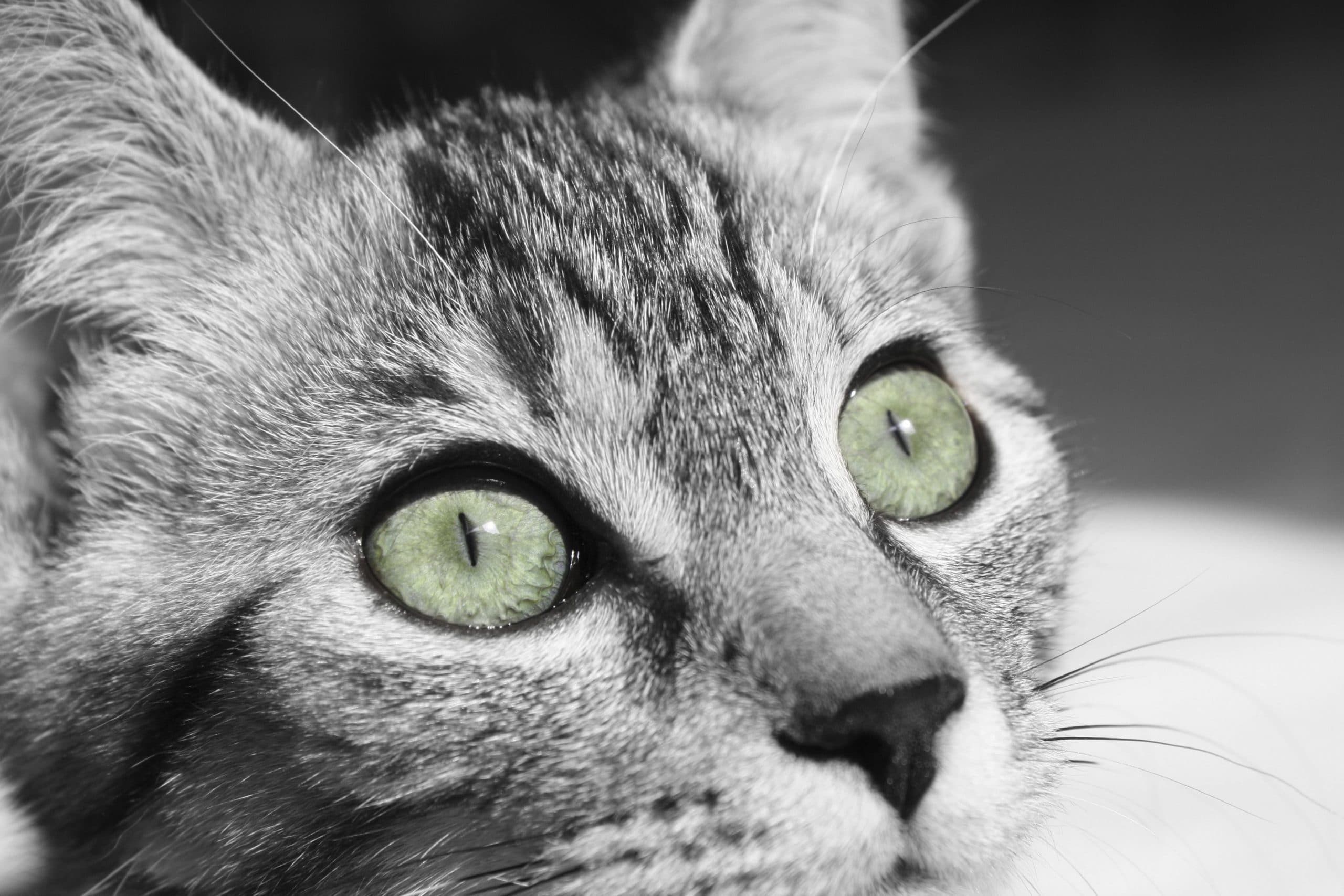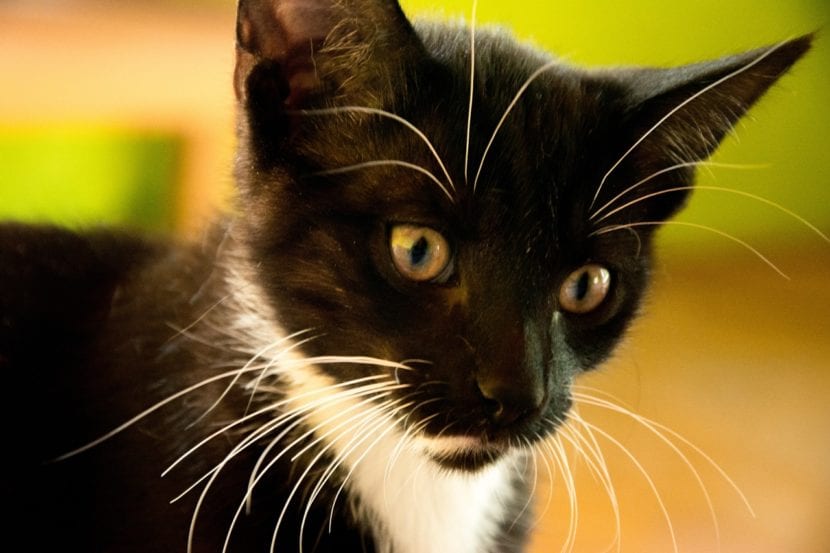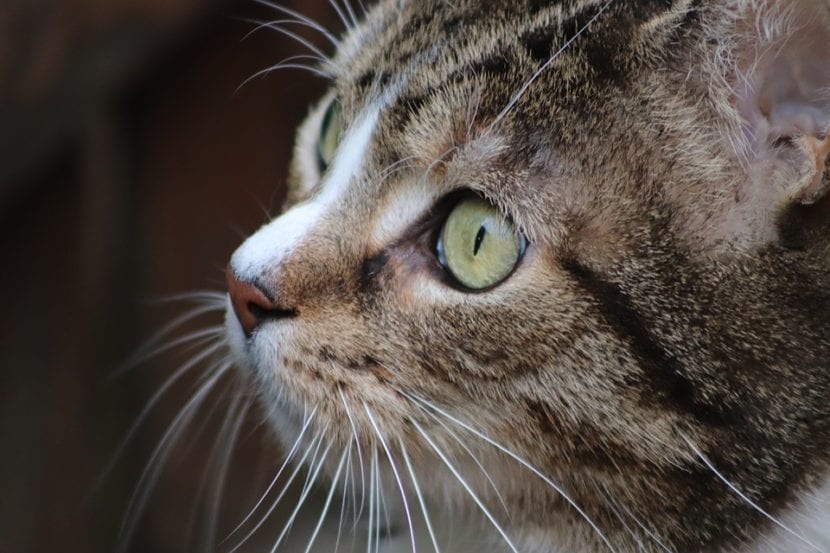
Our cats have very long and beautiful whiskers that move at times. But if we think that they are only a feature of their natural beauty, we are wrong, since they are an instrument that allows them to cope with the external environment with great ease.
However, it is important and interesting to ask what are the cat's whiskers forIt is a way for us to get to know our furry animals better and, incidentally, it will also help us to take care of them even better.
What function do the whiskers of cats serve?

Whiskers, known by the technical name vibrissa, they are sensors that allow them to move, in fact, they are like your other eyes that help you to move comfortably through narrow places and define distances when there is little lighting (especially at night) since they are able to detect minimal variations in the air currents or in the directions in the ones that moves. Thus, as hunters, these sensors are also very useful for them to know where their possible prey is and how to attack it at the precise moment.
Another important function of whiskers is to contribute to the balance of the cat: when it loses those of one side of its body it will not move coordinately.
Whiskers help them see close up
Cats' eyes tend to evolve to be able to see more or less clearly ahead and into the distance, which is why it is difficult for them to find something inanimate and odorless that we have left them less than 30 centimeters away unless we move it.

Therefore, these felines have learned to turn their whiskers forward in order to capture tactile stimuli, which provide them with a three-dimensional image of what is right in front of them. In this way, they can know in great detail what their world looks like.
Much more than a help. The language of the cat's whiskers
If you thought that cats' whiskers were only used to see up close, balance or hunt, you were wrong 🙂. The truth is that depending on your position, we can know what state of mind you are in:
- Sideways, relaxed: they feel calm.
- Forward: they are on alert.
- Almost glued to the face: they are angry, tense and / or uncomfortable.
How many whiskers does a cat have?

Usually cats have between 16 and 24 whiskers (some have more, others less), half on each side of your face. If you drop one, a replacement will grow back. Losing them makes cats often bewildered and their lives can be put in jeopardy in the event of a massive loss of these sensor hairs. In these cases, to protect its safety, we advise you to leave it inside your home.
They also have some short vibrissae above the eyes, called superciliary; under the ears, known as genales; and in the hind legs that are called carpal or ulnar.
What happens if the cat's mustache is cut off?
The feline will have trouble measuring distances correctly, so you are more likely to hit objects, get stuck in a narrow space, or have difficulty running due to the lack of balance caused by the loss of your vibrissae.
Likewise, it cannot be ruled out that he begins to feel emotionally bad, that he becomes depressed or sad and that he dedicates more time to his naps than for example to play with his family.
Do cat's whiskers grow back?
Whiskers, like common hairs, grow back if cut. But you have to keep in mind that they are very important to them, and that you should never, under any circumstances, cut them. It is no longer because they are an essential part of their body and of them as felines, but it is a matter of respecting and accepting them as they are.
But what if they drop for no apparent reason?
Why does my cat's whiskers fall out?

When a cat's whiskers fall out, it may be for any of these reasons:
- Allergies: to some food, dust, smoke, ... If we see that apart from having less vibrissae he coughs, scratches a lot, has ocular and / or nasal secretions and reddened skin, we must take him to the vet.
- External parasites: like fleas or ticks. The intense itching and discomfort will make you scratch frequently, and if left untreated you could injure yourself. Put an antiparasitic on a regular basis (once a month or every three months, depending on what the container indicates) and avoid these discomforts.
- Young: Sometimes, during the shedding of hair, some whiskers may fall off. This is completely normal. If you don't see any other symptoms, don't worry.
- Anxiety and / or stress: the cat tolerates very bad stress. You need to be calm and always follow the same routine, in a place where you are loved and respected. During a move, trip, loss of a loved one, etc. you may feel bad, and you may lose some whiskers. Do not hesitate to help him.
If you see that you have problems with his coat or whiskers, or if they fall off frequently, it is advisable that you take him to the vet to check him and see that all is well in his health.